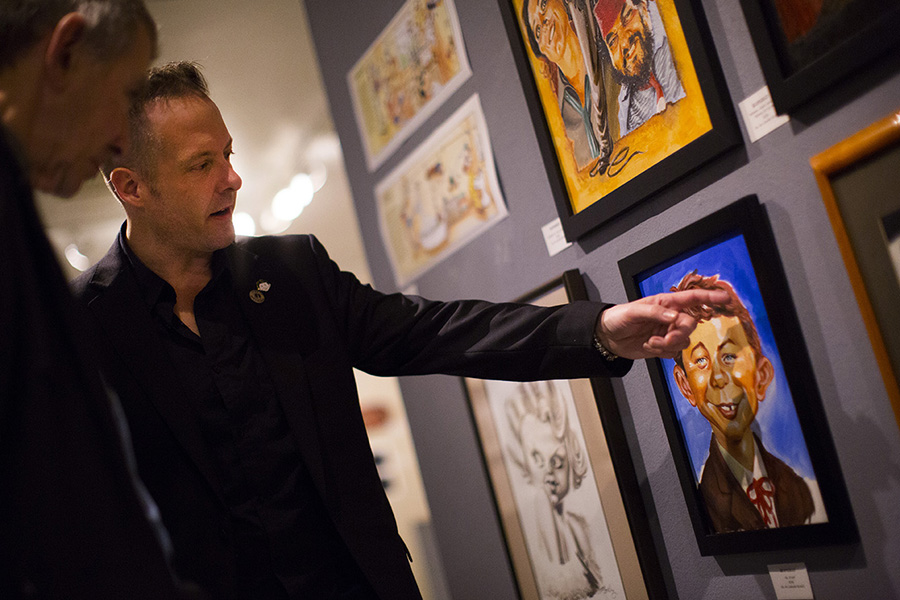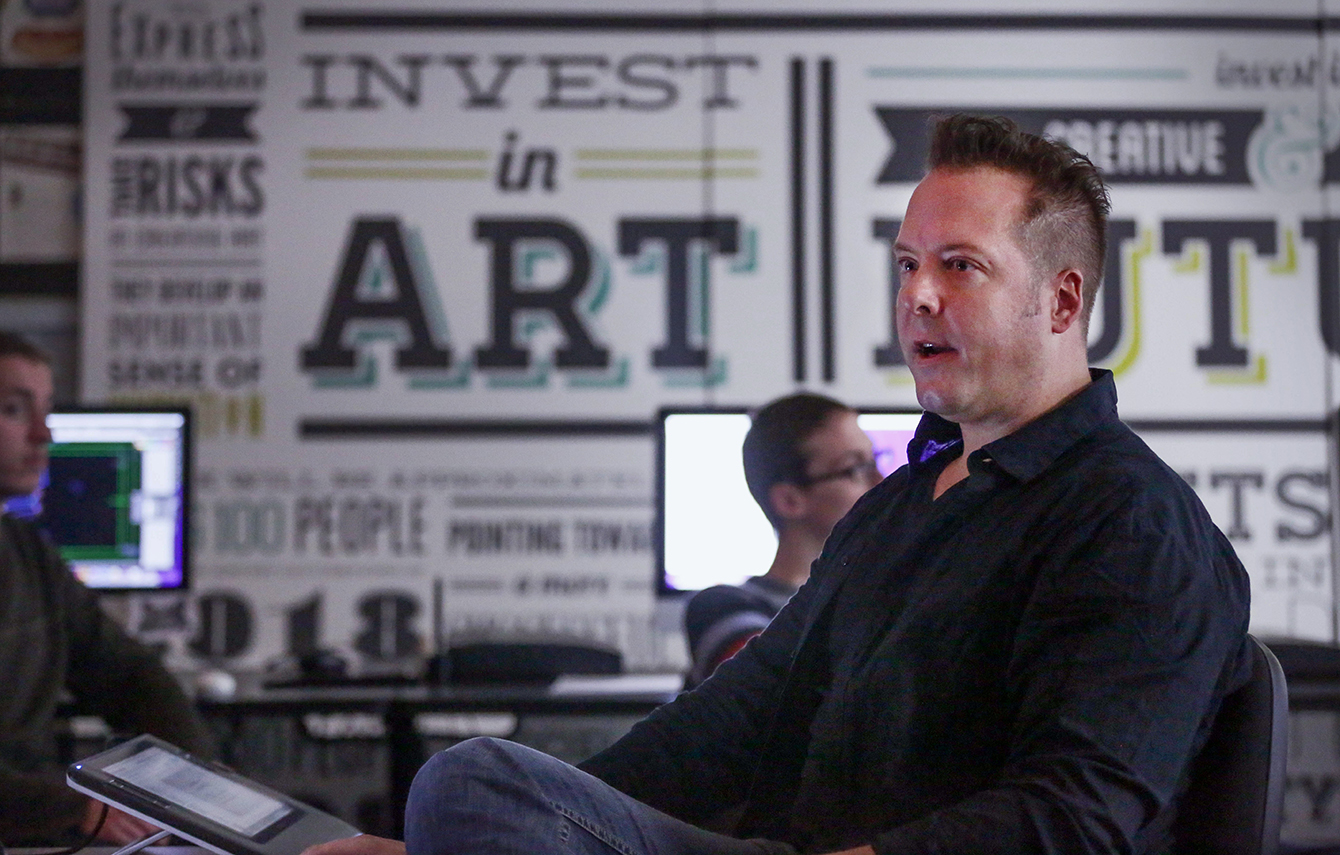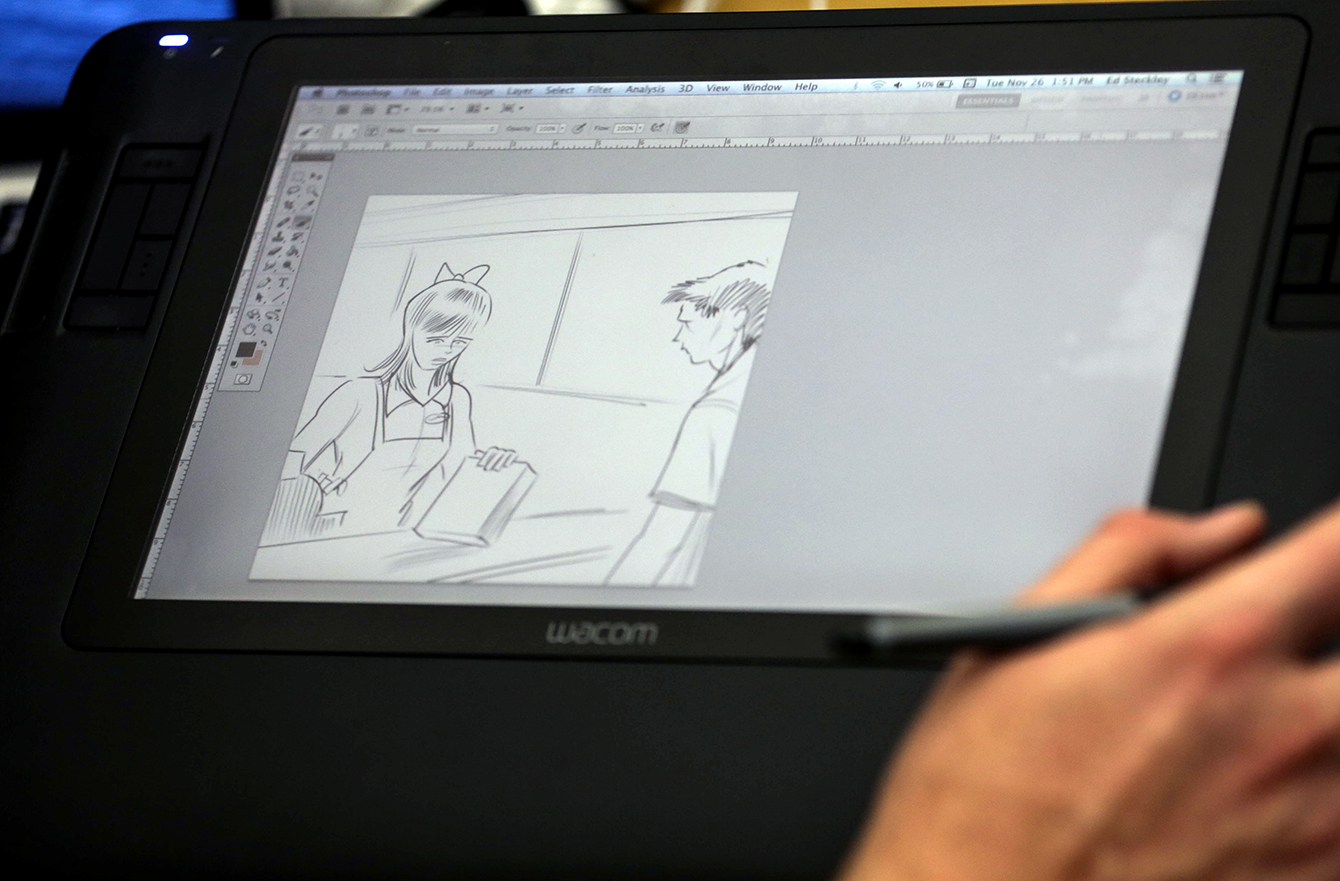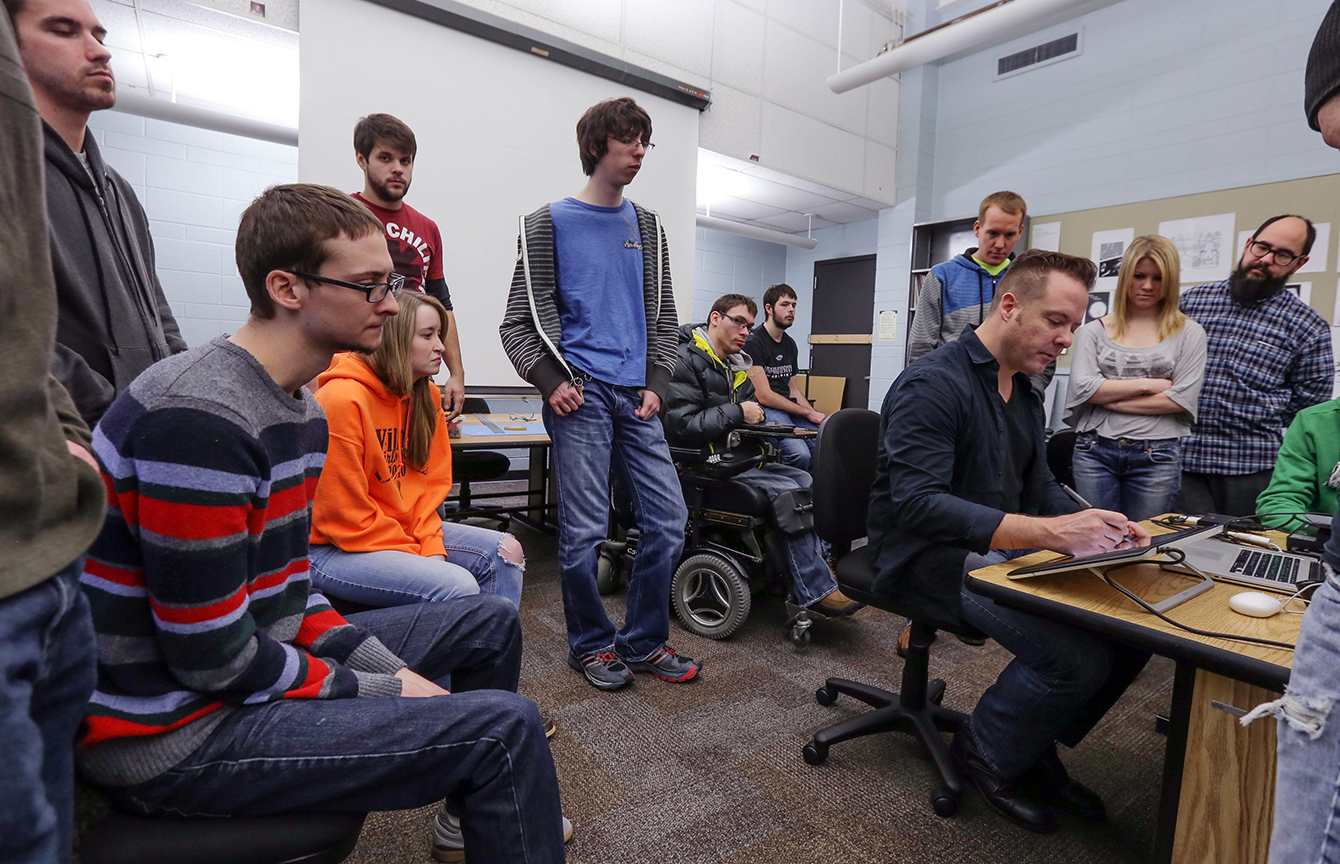Warhawk Voices — Ed Steckley
February 04, 2019
Photos by Craig Schreiner | Written by Craig Schreiner
Ed Steckley is an award-winning artist in New York City specializing in illustrations for children’s books, product packaging and advertising. In December, after 27 years, the Racine, Wisconsin native finished his bachelor’s degree in art at UW-Whitewater.
“I found art when I was about four years old. I knew I was going to be successful at it. The thought of doing something else was never realistic. And I never take that for granted.”
“I came to UW-Whitewater in 1991 as an undergrad and… beginning in 1992, I got a job drawing caricatures in a theme park and that was my summer job. I got my practice as a caricature illustrator by drawing thousands and thousands of faces in theme parks. We took a lot of pride in our caricatures. I did that in a number of states.”
“In 1995, I decided to leave school because I was working as an artist and beginning my career as an illustrator. Frankly, I got a little bit lazy and decided not to come back for my last year.”
“Mad Magazine has always been my favorite (client) because people know it and I’ve been a Mad Magazine fan all my life. Mad Magazine is cool because it’s really in my wheelhouse. But as a freelance illustrator, you have to become comfortable with drawing things that aren’t in your wheelhouse.”

“I decided to finish my degree because I do believe strongly in the importance of an education. I have come back to (UW-Whitewater) to do (visiting artist) workshops and classes. I talk a lot to young art students and I didn’t like advising young people to go to art school when I didn’t have a degree myself.”
“I met with an adviser and a professor (at UW-Whitewater) and we worked out an individual study program. We set check-in dates. I would send sketches, layouts, then the revisions. It was all done over email.”
“I want to do a lot of work with the university. I work with people who come to New York and who are not equipped to make a living as artists. You have to learn business. You have to learn how to do an invoice. You have to learn about clients. If you use an agent, you have to learn what an agent is. You have to learn the world doesn’t revolve around your artwork.”



